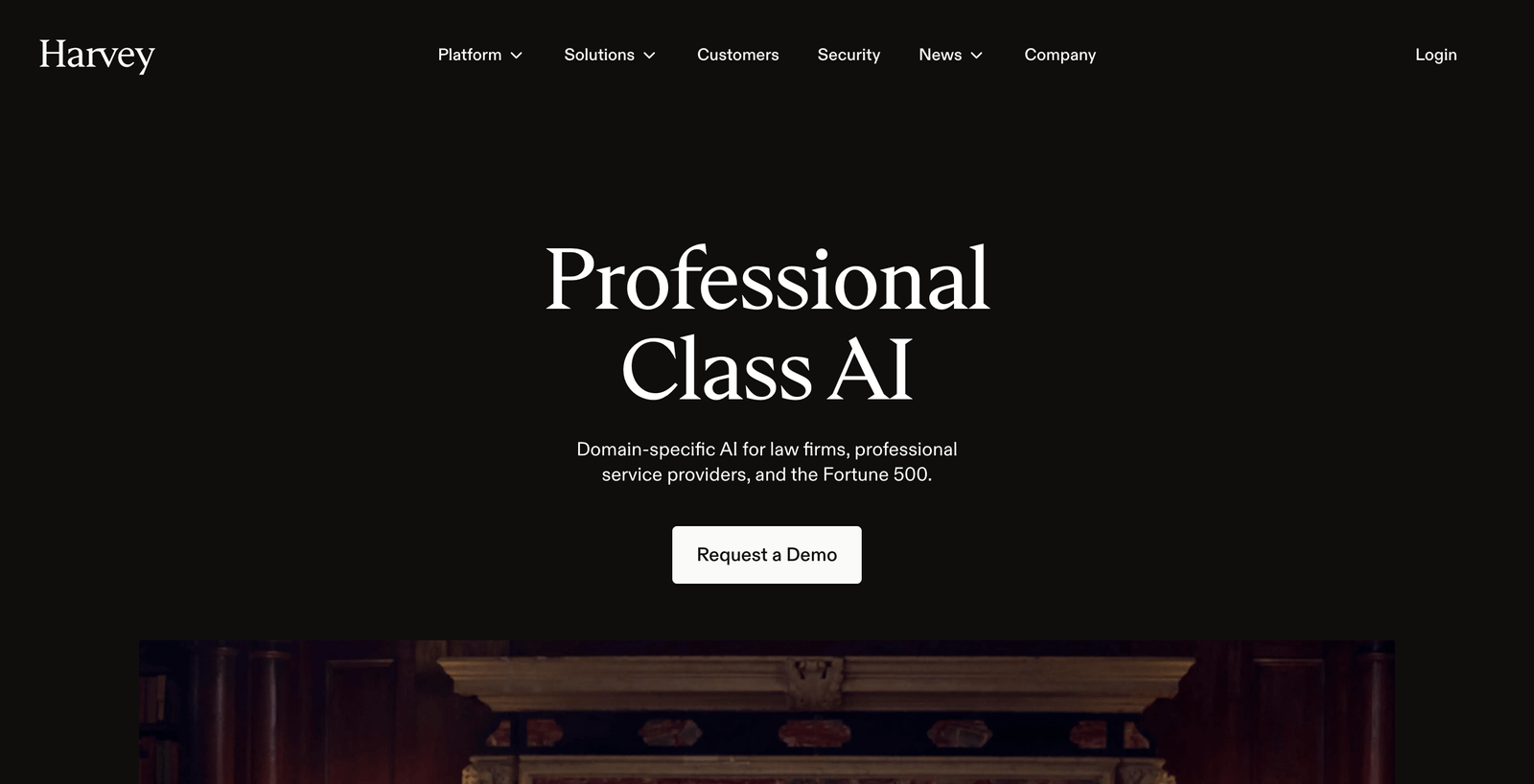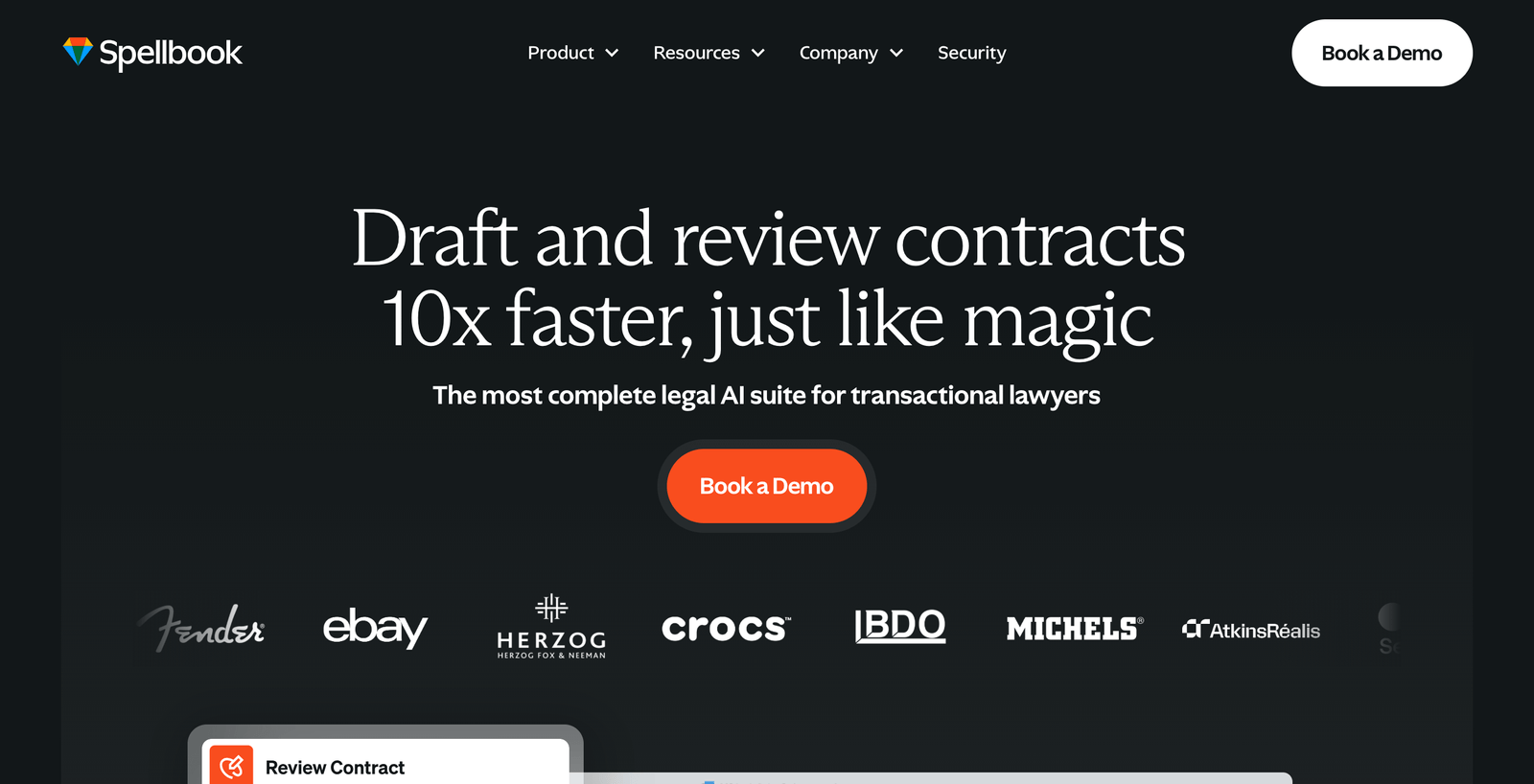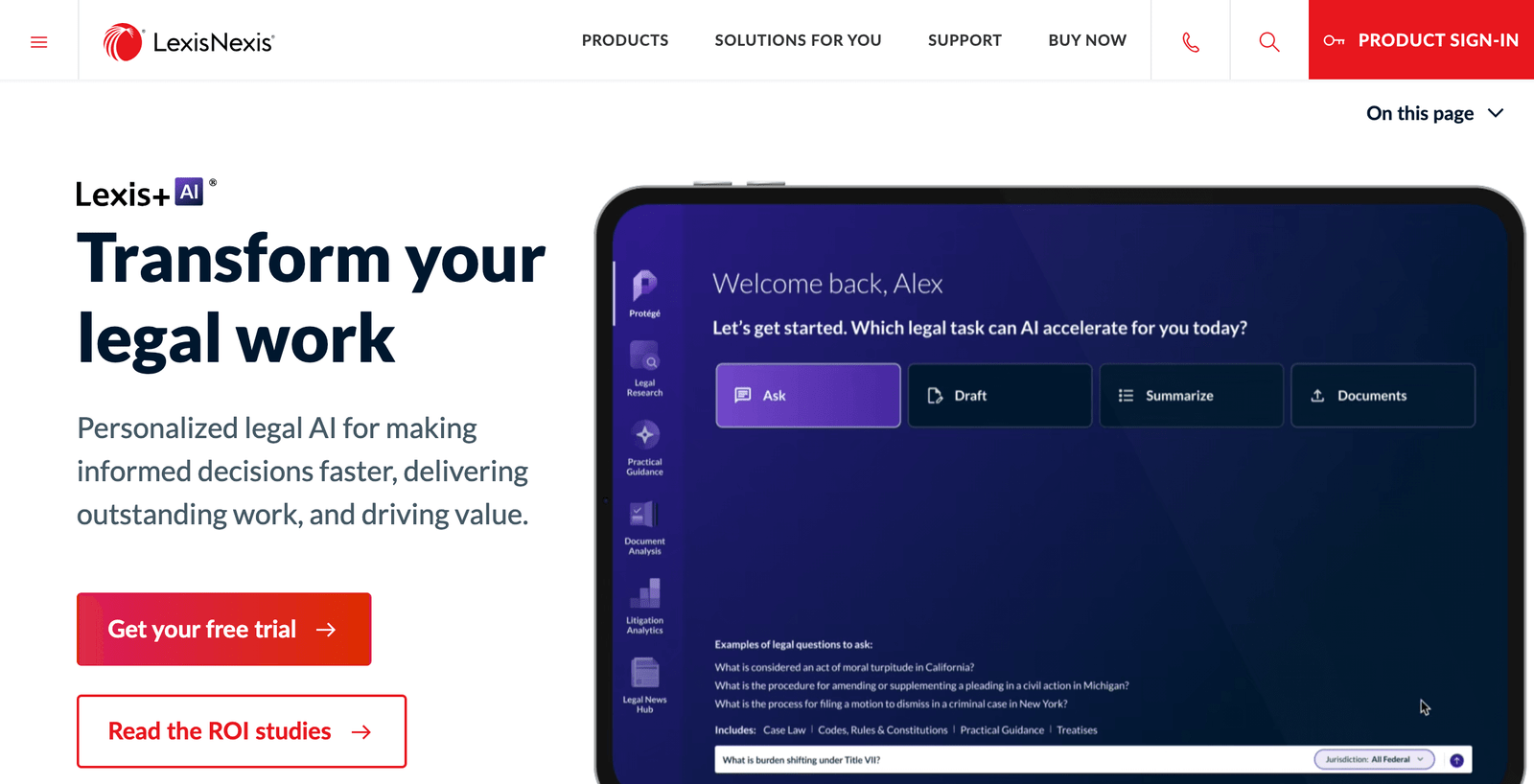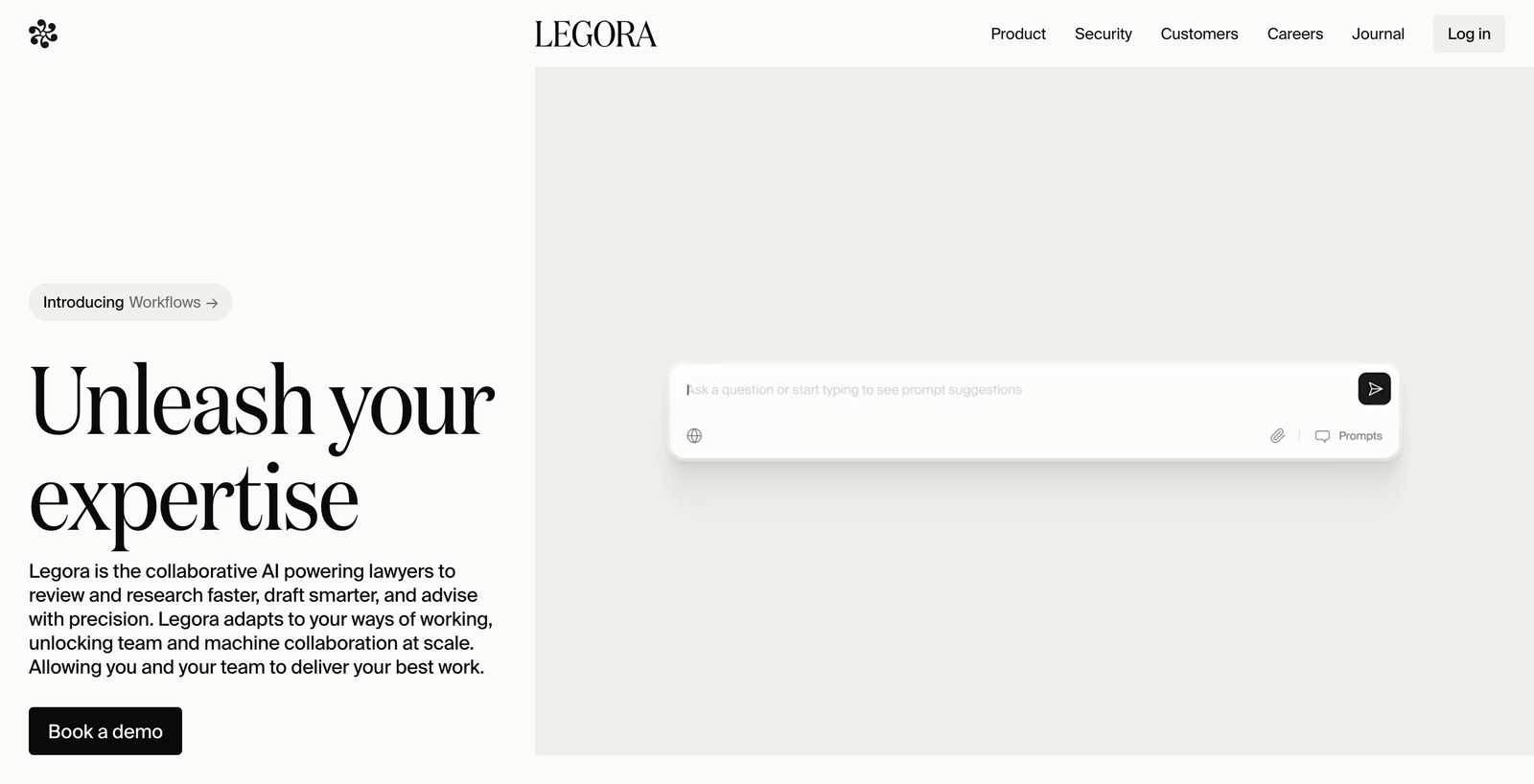Not too long ago, legal research meant drowning in dusty law libraries, highlighter in hand, hunting through endless volumes for that one precedent that could make or break your case. Those who mastered the art of Boolean searches and Westlaw shortcuts held the keys to the kingdom. People who lived for the thrill of finding that needle-in-a-haystack citation, who could navigate legal databases like seasoned ship captains.
AI has been quietly transforming legal practice for years through document review and case prediction. But now the floodgates are open: AI legal assistants are here to make you forget the tedium ever existed. If it helps you win cases and serve clients better, who cares how many algorithms are running behind the scenes?
So, which AI tools are actually worth your billable hours, your bar dues, and your sanity? I spent weeks testing legal AI platforms, billing imaginary clients, and drafting everything from contracts to briefs to answer that question. Based on all my testing, here are the AI legal tools that’ll make you feel like you have a team of junior associates working 24/7, law review credentials not included.
The best AI tools for lawyers
Harvey for comprehensive legal work
Spellbook for contract review and drafting
Lexis+ AI for legal research
Legora for collaborative legal work
CoCounsel for litigation support
What makes the best AI legal tool?

Before this wave of legal AI, we had basic automation tools, simple document assembly, basic legal templates, and early e-discovery platforms. These helped with routine tasks but still required significant manual oversight and couldn’t handle complex legal reasoning.
Two major shifts changed everything. First, large language models became sophisticated enough to understand legal nuance, context, and specialized terminology. Second, these models were trained specifically on legal datasets, making them capable of actual legal analysis rather than just text generation.
Lawyers are incorporating legal AI “copilots” and related tools into their workflows, driven by a booming landscape of AI legal startups. 2024 marked a record-breaking year for legal-tech startups, which raised $4.98 billion overall, largely propelled by the booming interest in AI.
The best AI legal tools now take your legal questions and transform them into comprehensive analysis, generating case citations, contract provisions, and legal strategies. They integrate with your existing workflow, offering ways to research, draft, and review without switching between multiple platforms.
Testing criteria
Beyond those general capabilities, here are the criteria I used while testing:
End-to-end legal workflows. These AI tools can take you from initial legal question to polished work product without requiring multiple platforms.
Legal-specific training. They understand legal terminology, citation formats, and professional standards, not just general language patterns.
Accuracy and reliability. Essential for legal work where mistakes have real consequences. Each tool had to demonstrate consistent, verifiable results.
Ethical compliance. All tools needed to address confidentiality, conflict checking, and other professional responsibility concerns.
Integration capabilities. They work with existing legal software like Word, legal databases, and practice management systems.
Over the past month, I tested these tools on contract reviews, legal research, brief drafting, and case analysis across different practice areas, from corporate transactions to litigation.
What about general AI tools like ChatGPT?
General-purpose AI tools didn’t make this list. While ChatGPT and Claude are powerful, they lack the specialized legal training, citation accuracy, and professional safeguards that legal practice demands. As of 2025, there are 16 state bars that have addressed or are planning on addressing AI and legal ethics. All nine of the ethics opinions issued so far discuss lawyers’ supervisory duties related to generative AI use.
The tools on this list are specifically designed for legal professionals, with proper safeguards for client confidentiality, accurate legal citations, and understanding of professional responsibility requirements.
The best AI legal tools at a glance
| Best for | Standout features | Pricing |
|---|---|---|
| Harvey | Comprehensive legal work | Custom LLMs for elite law firms; covers all practice areas |
| Spellbook | Contract review and drafting | Works directly in Microsoft Word; GPT-4o powered |
| Lexis+ AI | Legal research | Natural language search; real-time validation |
| Legora | Collaborative legal work | Team collaboration features; adaptable workflows |
| CoCounsel | Litigation support | Document review; case analysis |
Best AI tool for comprehensive legal work
Harvey

Harvey pros:
- Custom-trained models for different practice areas
- Works across jurisdictions and legal systems
- Built specifically for elite law firms
Harvey cons:
- Premium pricing model
- Requires firm-wide implementation
Harvey builds custom LLMs for elite law firms to tackle the most complex legal challenges across every practice area, jurisdiction and legal system in the world. If you’re at a firm that handles sophisticated legal work across multiple practice areas, Harvey is the Swiss Army knife of legal AI.
What sets Harvey apart is its custom training approach. Rather than using a one-size-fits-all model, Harvey creates specialized versions tailored to your firm’s practice areas and client needs. Whether you’re handling M&A transactions, complex litigation, or regulatory compliance, Harvey adapts to the specific requirements of each area.
Harvey partners with OpenAI to build a custom-trained model for legal professionals. This partnership ensures access to cutting-edge AI technology while maintaining the specialized legal focus that general models lack.
The platform integrates seamlessly with existing law firm workflows, understanding the context of your cases and maintaining continuity across different matters. It’s not just generating text, it’s providing strategic legal analysis that considers your firm’s precedents, client relationships, and practice standards.
Harvey pricing: Contact Harvey directly for custom pricing based on firm size and requirements.
Website: harvey.ai
Best AI tool for contract review and drafting
Spellbook

Spellbook pros:
- Works directly in Microsoft Word
- Specialized for transactional lawyers
- Powered by GPT-4o for accuracy
Spellbook cons:
- Focused primarily on contracts
- Premium pricing for advanced features
Spellbook is the #1 Legal AI for for transactional lawyers. Using GPT-4o and other large language models to review and suggest language for your contracts, right in Microsoft Word. If you spend your days negotiating deals and reviewing contracts, Spellbook transforms your Word documents into intelligent legal workspaces.
The beauty of Spellbook lies in its seamless integration. You’re already working in Word, now your documents become collaborative partners. Spellbook uses AI to review contracts, identify risks, and suggest edits, right in Word. Save time and improve accuracy with AI-powered contract review
Beyond basic review, Spellbook understands contract strategy. It flags unusual provisions, suggests alternative language, and helps identify potential risks before they become problems. The tool learns from your editing patterns and firm preferences, becoming more valuable over time.
For transactional lawyers handling volume work, Spellbook dramatically reduces review time while improving consistency. It’s like having a senior associate who never gets tired and always catches the details you might miss at 2 AM.
Spellbook pricing: Prices can vary widely, typically starting from around $200 per month.
Website: spellbook.legal
Best AI tool for legal research
Lexis+ AI

Lexis+ AI pros:
- Built on trusted legal database
- Natural language search capabilities
- Real-time case validation
Lexis+ AI cons:
- Requires Lexis subscription
- Learning curve for advanced features
Lexis+ AI is a comprehensive legal research platform & interactive AI assistant that drafts, summarizes, analyzes & responds like a trusted colleague. For lawyers who live in the research trenches, Lexis+ AI transforms how you find and analyze legal authority.
Lexis+ AI is the best AI tool for legal research. It uses natural language processing and machine learning to analyze legal documents, provide case summaries, and generate citations. Lexis+ AI offers real-time Shepard’s validation, conversational search, and predictive insights
What makes Lexis+ AI special is its foundation on the comprehensive Lexis database. You’re not just getting AI-generated content, you’re getting AI analysis of verified legal sources. The real-time validation ensures you’re always working with current law, while the conversational interface lets you research the way you think, not the way databases traditionally required.
The platform excels at connecting dots across cases, statutes, and regulations. Ask it about developments in a specific area of law, and it provides comprehensive analysis with proper citations, saving hours of manual research.
Lexis+ AI pricing: Contact LexisNexis for subscription pricing.
Website: lexisnexis.com/en-us/products/lexis-plus-ai.page
Best AI tool for collaborative legal work
Legora

Legora pros:
- Built for team collaboration
- Adapts to existing workflows
- Scales with firm growth
Legora cons:
- May require team training
- Pricing varies by team size
Legora is the collaborative AI powering lawyers to review and research faster, draft smarter, and advise with precision. Legora adapts to your ways of working, unlocking team and machine collaboration at scale. For firms that emphasize teamwork and collaboration, Legora bridges the gap between individual AI assistance and firm-wide intelligence.
Legora shines in its ability to maintain context across team members and matters. When multiple attorneys work on the same case, Legora ensures everyone has access to the collective intelligence and maintains consistency in approach and analysis.
The platform adapts to your firm’s existing processes rather than forcing you to change how you work. Whether your team prefers certain research methodologies or has specific client communication standards, Legora learns and reinforces these preferences.
Legora pricing: Contact Legora for team-based pricing.
Website: legora.com
Best AI tool for litigation support
CoCounsel

CoCounsel pros:
- Specialized for litigation workflows
- Document review and analysis
- Case strategy development
CoCounsel cons:
- Litigation-focused functionality
- May require integration setup
Published yesterday, this first-of-its-kind stud… with Harvey and CoCounsel Leading the Pack demonstrates CoCounsel’s effectiveness in head-to-head testing against other legal AI tools.
CoCounsel excels at the heavy lifting of litigation, reviewing discovery documents, identifying key evidence, and developing case themes. The platform understands litigation strategy and can help identify strengths and weaknesses in your case before you walk into the courtroom.
For firms handling significant litigation loads, CoCounsel transforms document review from a time-consuming necessity into strategic intelligence gathering. It doesn’t just find documents, it understands their significance to your case theory.
CoCounsel pricing: Contact Thomson Reuters for litigation-specific pricing.
Tips for choosing the right AI legal tool
Here’s my practical advice for selecting and implementing legal AI:
Start with your biggest pain point. If contracts consume your time, try Spellbook. If research bogs you down, test Lexis+ AI.
Check bar compliance. Verify that any tool meets your jurisdiction’s ethical requirements for AI use in legal practice.
Test with real work. Use actual cases and documents during trial periods, generic examples won’t reveal how the tool handles your specific practice.
Consider integration needs. The best AI tool is useless if it doesn’t work with your existing systems and workflows.
Plan for training. Even intuitive tools require adjustment time. Budget for learning curves and team training.
Verify citations independently. AI tools can hallucinate cases or misstate legal principles. Always verify critical citations and legal conclusions.
Maintain client confidentiality. Ensure any tool you choose has appropriate safeguards for privileged and confidential information.
What’s next for legal AI?
The legal profession stands at an inflection point. Many lawyers fear that generative AI tools will replace them in the coming years. The truth is AI isn’t replacing lawyers anytime soon, but it is helping them do their jobs better.
The future of legal AI isn’t about replacement, it’s about amplification. These tools handle the routine analysis so lawyers can focus on strategy, client counseling, and complex problem-solving that requires human judgment.
We’re moving toward AI that doesn’t just help with tasks but truly understands legal strategy. Imagine AI that can analyze your opponent’s litigation history, predict judge preferences, or identify optimal settlement timing based on comprehensive data analysis.
The lawyers who thrive in this new era won’t be those who resist AI, but those who learn to harness it effectively. The bar isn’t being lowered, it’s being raised. Clients will expect the efficiency and insights that AI enables, making these tools not luxury add-ons but essential practice infrastructure.
So start experimenting, stay ethical, and keep learning. The future of law is being written now, and these AI tools are your co-authors.

